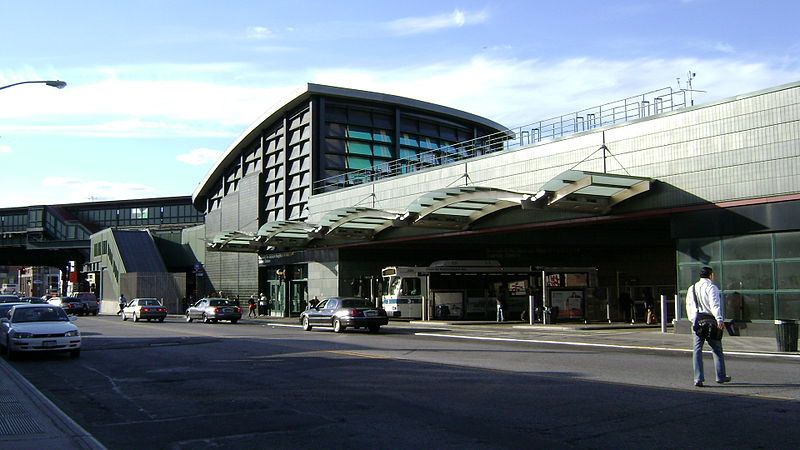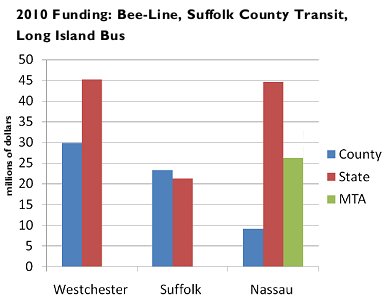 Throughout October’s campaign season as the MTA repeatedly came under fire, those running for office continued to call for more direct control over the MTA Board. Some of the candidates wanted to bring the MTA under the auspices of the New York State Department of Transportation or under the direct control of the governor. Others even advocated for the direct election of MTA Board representatives. New York politicians, it seems, do not know their history.
Throughout October’s campaign season as the MTA repeatedly came under fire, those running for office continued to call for more direct control over the MTA Board. Some of the candidates wanted to bring the MTA under the auspices of the New York State Department of Transportation or under the direct control of the governor. Others even advocated for the direct election of MTA Board representatives. New York politicians, it seems, do not know their history.
Once upon a time, the city’s transit oversight fell to the Board of Transportation, a six-man body appointed solely by the mayor. Transit policy was highly political, and it led to both disastrous fare policies and overbuilt subway lines. It is impossible to raise the fare when politicians are held directly accountable for those hikes, and even though we dislike fare hikes, it is often necessary to raise fares at the very least to keep pace with inflation.
Cap’n Transit has another take on the issue. He explores the idea within the framework of democracy, access and accountability. I’ll quote at length but do visit the good Captain’s site:
Many years ago, I was in an officer of a small student political group in a distant city, and I got a call from a bicycle activist I knew. He wasn’t a member of our organization, or even our political party, but he was running for election to an obscure municipal board that just happened to have influence over bicycle policy. I helped this guy reach out to the student body in a way that clearly violated campus rules, and he won by a small margin, quite possibly entirely due to that outreach. Now that city has over four hundred miles of bicycle facilities.
Sounds great, right? The results are impressive, but the whole thing was completely undemocratic. A tiny, dedicated group was able to sway an election to represent a fifth of the city. Only a small number of people were informed enough to know who they were voting for when they went into the booth. If you want democracy, you want the issues and agendas to be disclosed and debated well in advance. The only reason I feel comfortable with this is the knowledge that the pro-car people were pulling the same kinds of tricks. It was a dirty fight, so we fought dirty.
I’m pretty sure that this kind of dirty politics…is the kind of thing that regularly happens on school boards around the country. If you’ve been paying attention for the past year and a half, you’ll be well aware of the number of people who haven’t. Very few people know who their State Legislators are, and of those people, a tiny proportion know that these legislators have been redirecting money “dedicated” to the transit system for other purposes. Would you trust these people to vote for a representative to the MTA board?
…The most democratic way to run New York’s transit system is to have it be an executive agency just like the Department of Transportation…In fact, it might not have been as easy for Cuomo to duck the question of transit funding for as long as he did, if it had been clearly spelled out that the Governor controls the subway system.
Even beyond the theoretical, the MTA was born out of the need to remove transit decision-making from the political sphere. Politicians shouldn’t be making technocrat decisions that demand and require a certain expertise that they don’t possess, and I’d much rather have Jay Walder heading the MTA than suffering through a politically-dominated authority board. Fares cannot rise appropriately and service cannot be adjusted to meet demands without the right people making the decisions.
The real problem — and it’s not a sexy one — is oversight. Despite a new authority oversight board that doesn’t yet have much teeth, New York doesn’t have an adequate mechanism for authority oversight. The mayor has a few votes on the MTA Board and so too does the governor. But absent legislative action and the power of appointment*, there is no executive control over the MTA Board.
*It would help if the state executive would appoint qualified people to the Board as well. In the past, real estate interests dominated the MTA Board when a proper mix of people would involve transit planners, financial experts, union representatives and rider advocates. Eliot Spitzer’s and David Paterson’s appointments have been strong steps in the right direction.
So fix the MTA, if it’s truly broken, by consolidating power but do so in a way that doesn’t jeopardize fiscal contributions. The mayor wants his say and can threaten to remove funding if the governor seizes the MTA. The governor might want oversight but can’t risk losing the money. Even outside of the realm of politics, the MTA is still a political problem.


 James Vacca, chair of the City Council’s Transportation Committee, is quickly becoming transit advocates’ most vocal supporter in New York government. Today, Vacca along with Gene Russianoff, Paul Steely White and Kate Slevin issued a call for New York state, mired in a budget crisis, to keep its hands off of money ostensibly earmarked for transit.
James Vacca, chair of the City Council’s Transportation Committee, is quickly becoming transit advocates’ most vocal supporter in New York government. Today, Vacca along with Gene Russianoff, Paul Steely White and Kate Slevin issued a call for New York state, mired in a budget crisis, to keep its hands off of money ostensibly earmarked for transit.












 (Rockaway Park Shuttle)
(Rockaway Park Shuttle)